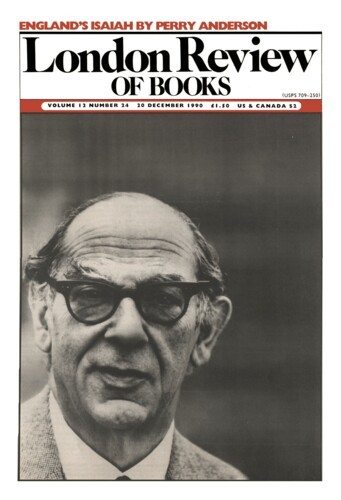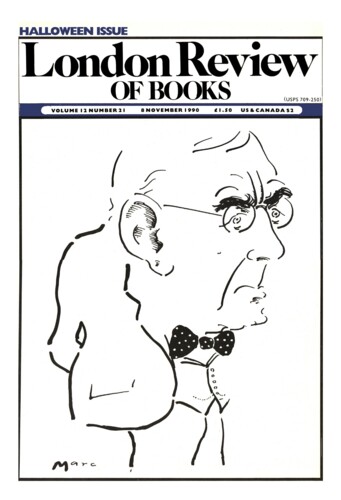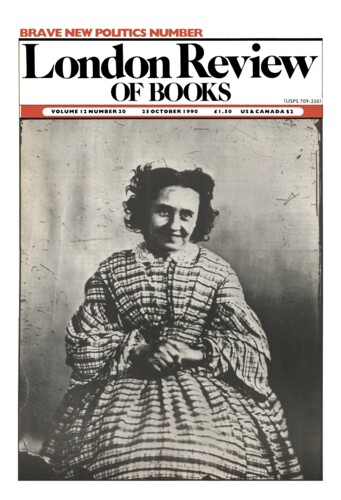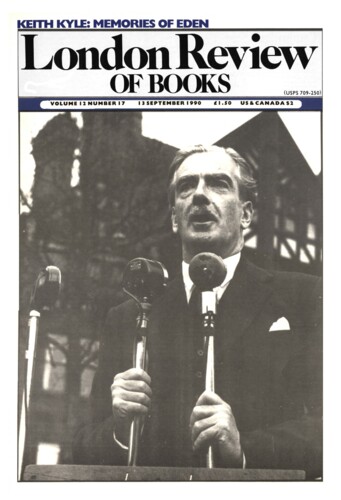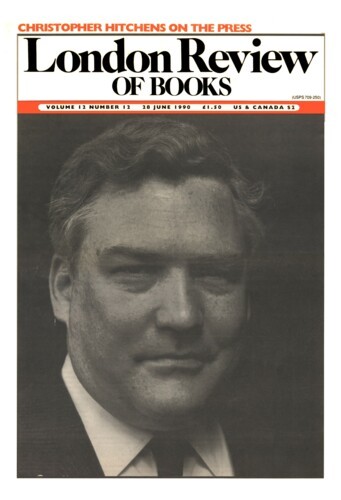Tio Sam
Christopher Hitchens, 20 December 1990
A feature, not just of the age of the end of ideology, but of the age immediately preceding the age of the end of ideology, is that of the dictator who has no ideology at all. While Pinochet had a Manichean or Francoite anti-Communism to inform him, and Vorster and Verwoerd had the dream of white Christian destiny, and the Greek colonels the rather more insipid rhetoric of ‘Greece for Christian Greeks’, the decay of outright fascist systems was quite a rapid and complete one – much more rapid and complete than Nicos Poulantzas, for example, had envisaged in La Crise des Dictatures. On the other side of the Ribbentrop-Molotov hyphen, while it is true that men like Mikhail Suslov and Mao Tse-tung may have gone to their graves thinking of the Leninist state as history exemplified, it is not believable that Edvard Gierek or Milos Jakes or any of the other ‘Vodka-Cola’ general secretaries (Erich Honecker partially exempted) thought anything of the sort. When the Army deposed the Party in Poland in 1981, Susan Sontag was quite right to say that a new stage of decadence had been reached, though her ironic formulation of ‘fascism with a human face’ was misleading. By that stage, Ceausescu and Kim Il Sung had taken the personality cult beyond the baroque, insisting on the study only of their own thoughts and lives.’
